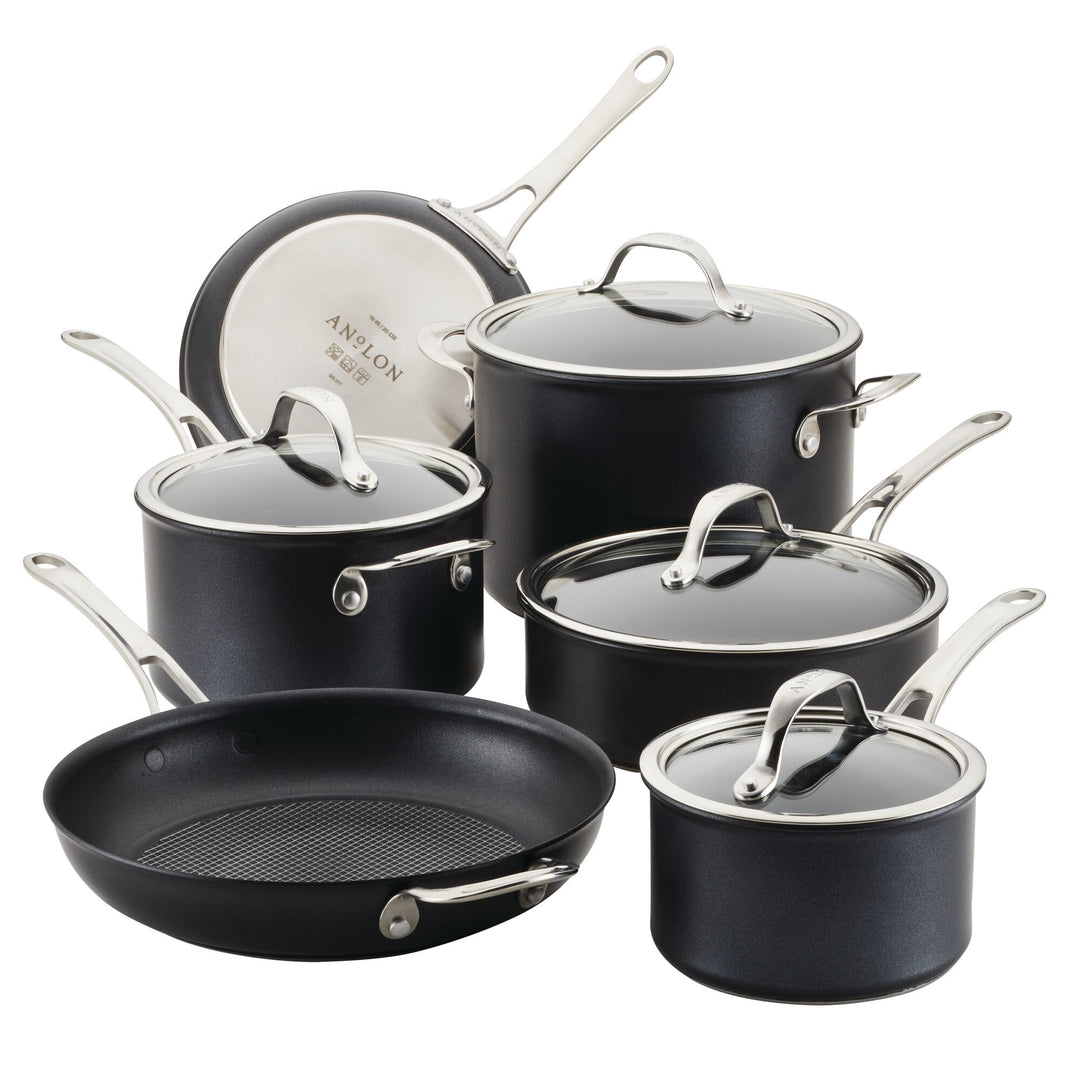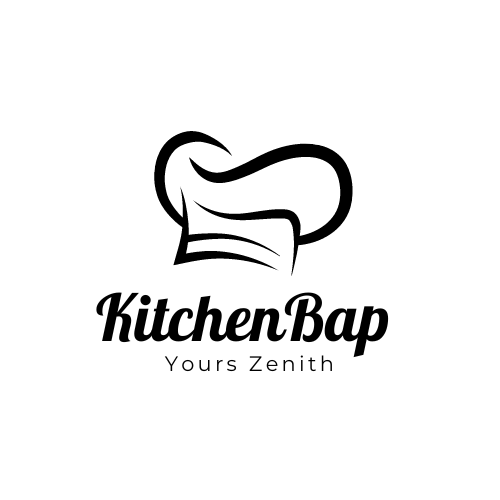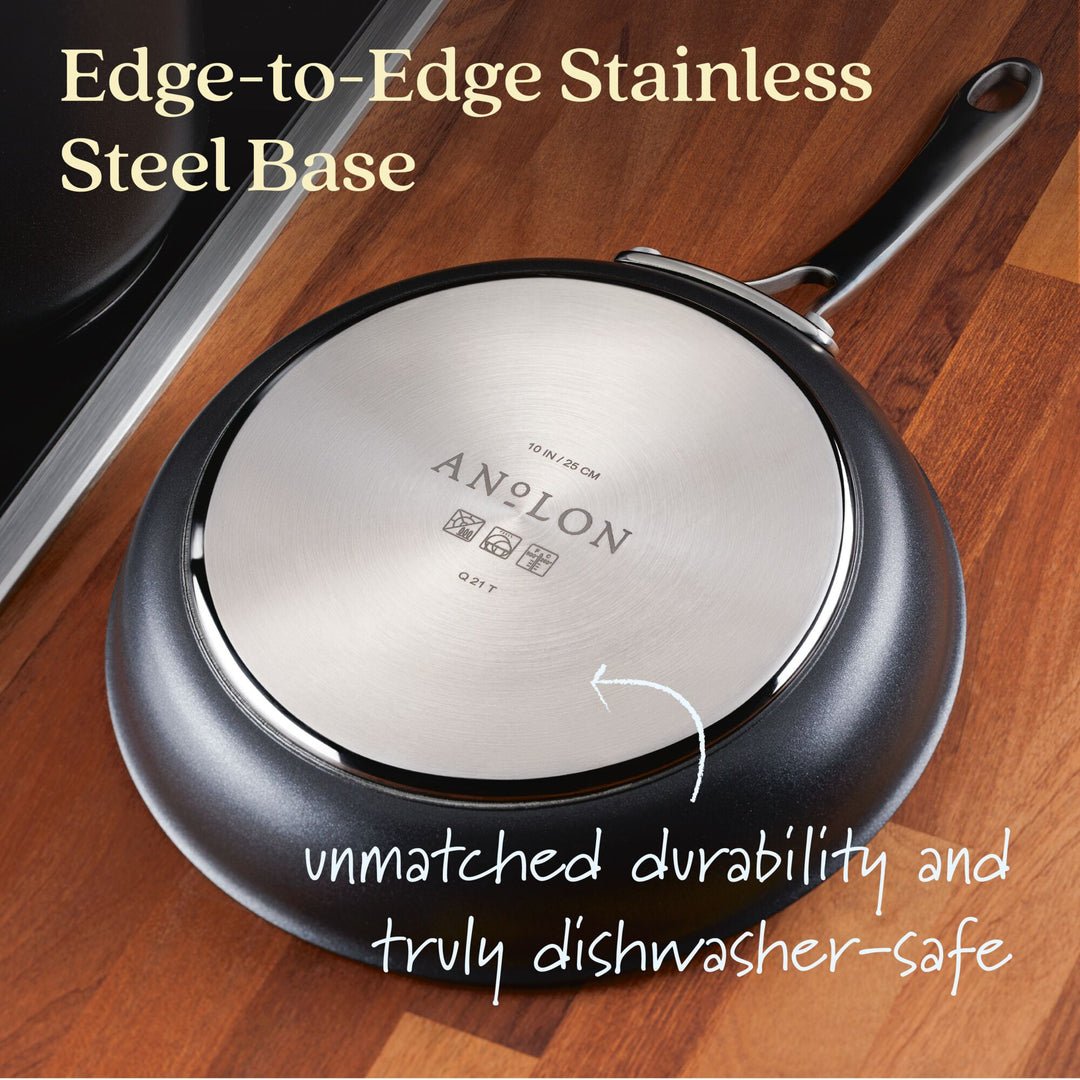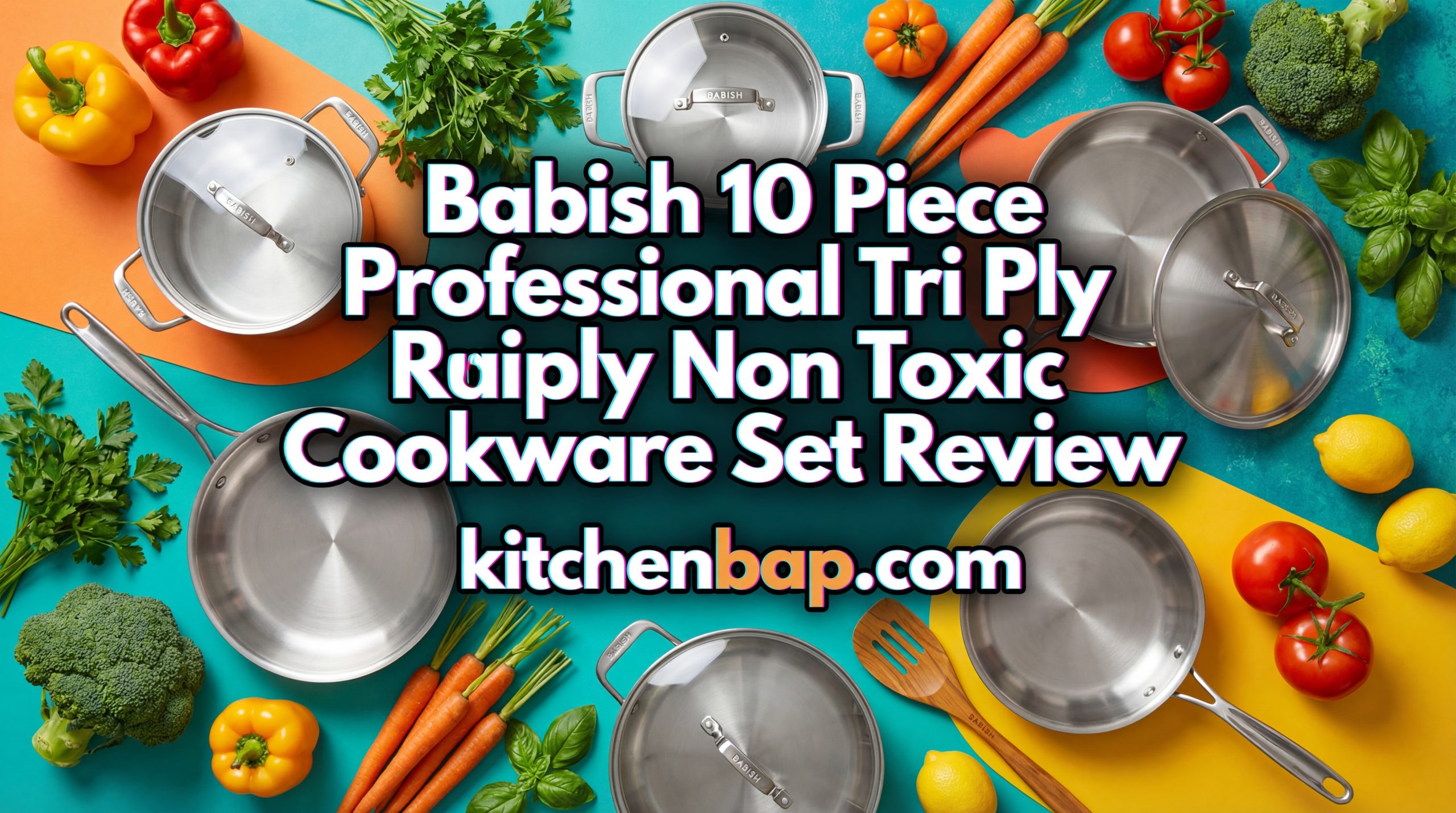Is Anolon cookware safe? Yes, it is generally considered safe for cooking.
Anolon cookware is made with durable materials and is designed to withstand high temperatures. Cookware safety is important for anyone who cooks. Many people worry about what their pots and pans are made of. Anolon cookware offers options that are both non-stick and metal utensil safe.
This means they can handle everyday cooking without harmful chemicals. Understanding the safety of cookware helps you make better choices for your kitchen. It also ensures that your food stays healthy. In this blog post, we will explore the safety features of Anolon cookware and answer common questions. Let’s dive into what makes Anolon a popular choice for home cooks.
Anolon Cookware Materials
Anolon cookware is popular for its durability and performance. The materials used in its construction play a key role in its safety and effectiveness. Understanding these materials helps you decide if Anolon cookware is right for you.
Non-stick Surfaces Explained
Many Anolon products have non-stick surfaces. This feature makes cooking easier and cleanup quicker. Non-stick coatings help prevent food from sticking to the pan.
These surfaces are often made with a special coating. This coating is PFOA-free, making it safer for cooking. PFOA is a chemical previously used in some non-stick products. It raised health concerns. Anolon ensures its cookware is free from harmful substances.
To maintain non-stick surfaces:
- Use wooden or silicone utensils.
- Avoid metal utensils to prevent scratches.
- Do not use high heat.
Materials Used In Anolon Cookware
Anolon cookware uses a variety of materials for strength and performance. Here are the main materials:
| Material | Description | Benefits |
|---|---|---|
| Hard-Anodized Aluminum | Durable and scratch-resistant aluminum. | Excellent heat distribution and durability. |
| Stainless Steel | Corrosion-resistant and strong. | Long-lasting and easy to clean. |
| Non-Stick Coating | Safe and easy-to-clean surface. | Reduces the need for oil and fat. |
Anolon cookware offers a range of products made from these materials. Each material contributes to the overall cooking experience.
Choosing the right cookware is essential. Knowing the materials helps ensure safe cooking.

Credit: anolon.com
Health Concerns With Non-stick Coatings
Many people enjoy using non-stick cookware for its convenience. Yet, there are health concerns associated with these coatings. Understanding these issues is crucial for safe cooking.
Chemicals Of Concern
Non-stick coatings often contain specific chemicals. Some of these can be harmful. The most discussed chemicals are:
- PFOA (Perfluorooctanoic Acid): Used in the production of Teflon.
- PFOS (Perfluorooctane Sulfonate): Linked to health risks.
- PTFE (Polytetrafluoroethylene): Commonly found in non-stick products.
While many brands have removed PFOA and PFOS, concerns remain about other chemicals. Some studies suggest these substances can affect health. They may disrupt hormones and cause other issues.
Risk At High Temperatures
Cooking at high temperatures poses risks. Non-stick coatings can break down under extreme heat. This can release harmful fumes. Here are key points to consider:
- Non-stick pans can reach unsafe temperatures quickly.
- Fumes released may cause flu-like symptoms in humans.
- Birds are particularly sensitive to these fumes.
Using non-stick cookware at high heat requires caution. Always follow manufacturer guidelines. Consider using lower heat settings to minimize risks.
Anolon’s Safety Features
Anolon cookware is designed with safety in mind. Its materials and technology ensure a safe cooking experience. This section explores Anolon’s safety features, focusing on two key aspects: non-stick technology and safety certifications.
Anolon’s Non-stick Technology
Anolon cookware uses advanced non-stick technology. This feature makes cooking and cleaning easier. Here are some important points:
- Durability: The non-stick surface is strong and long-lasting.
- Food Release: Foods slide off easily, reducing the need for oils.
- Heat Resistance: Can withstand high temperatures without breaking down.
This technology is free from harmful chemicals. It promotes a healthier cooking method. No need for excessive fats or oils. Enjoy cooking with less mess and hassle.
Safety Certifications
Anolon cookware meets several safety standards. These certifications guarantee that the products are safe to use. Here are some key certifications:
| Certification | Description |
|---|---|
| FDA Approved | Materials used are safe for food contact. |
| PTFE Free | Non-toxic surface that does not release harmful fumes. |
| PFOA Free | Safe non-stick coating without harmful chemicals. |
These certifications ensure that Anolon cookware is safe for daily use. Trust in the quality and safety of the products.

Credit: www.reddit.com
Comparing Anolon To Other Brands
Many people wonder how Anolon cookware stacks up against other brands. It is important to evaluate safety and performance. Anolon is well-known for its quality and durability. Let’s see how it compares to popular brands like Teflon.
Analon Vs. Teflon Coatings
Cookware safety often comes down to the type of coating used. Anolon uses a unique non-stick surface. This surface is free from harmful chemicals. In contrast, Teflon has faced safety concerns in the past.
Here’s a quick comparison of the two:
| Feature | Anolon | Teflon |
|---|---|---|
| Coating Material | Non-toxic, PFOA-free | May contain PFOA |
| Durability | Highly durable | Less durable |
| Heat Resistance | Up to 500°F | Up to 400°F |
| Scratch Resistance | Scratch-resistant | Less scratch-resistant |
Market Competitors And Safety
Many brands compete with Anolon in the cookware market. Each has its safety features. Here are a few notable brands:
- Calphalon: Known for hard-anodized aluminum. It is also PFOA-free.
- Scanpan: Uses ceramic-titanium coating. It is safe and eco-friendly.
- Cuisinart: Offers stainless steel options. Durable but less non-stick.
Safety ratings can vary among these brands. Always check for PFOA-free labels. Look for certifications from safety organizations. This helps ensure you choose safe cookware.
User Reviews And Experiences
User reviews offer real insights into Anolon cookware. Many users share their thoughts on safety, performance, and durability. These experiences can help you make informed choices.
Consumer Testimonials
Many consumers praise Anolon cookware for its quality. Here are some common themes from their testimonials:
- Non-stick performance: Users appreciate the effective non-stick surface.
- Even heating: Many find that the cookware heats evenly.
- Durability: Several reviews mention long-lasting materials.
- Easy to clean: Most users enjoy the simple cleaning process.
Here are a few direct quotes from user reviews:
“I love how easily food slides off the pan!”
“These pots have held up great over the years.”
Long-term Use Reports
Long-term users provide valuable insights. They often discuss their experiences after months or years of use. Here are some key points:
| Aspect | Feedback |
|---|---|
| Wear and Tear | Most users report minimal wear after extensive use. |
| Safety Issues | No major safety concerns reported by long-term users. |
| Performance | Performance remains consistent over time. |
| Maintenance | Regular maintenance keeps cookware in good shape. |
Users emphasize the importance of following care instructions. Proper care extends the life of Anolon cookware. Many find that their pots and pans still perform like new.

Credit: www.reddit.com
Proper Use And Maintenance
Taking care of your Anolon cookware ensures its safety and longevity. Proper use and maintenance prevent damage and keep your food healthy. Here are some tips for using and caring for your Anolon pots and pans.
Recommended Usage
- Use medium to low heat. High heat can damage the nonstick surface.
- Use wooden or silicone utensils. Avoid metal utensils to prevent scratches.
- Do not use your Anolon cookware in the oven above 400°F. Check the specific model for details.
- Avoid cooking acidic foods for long periods. This can harm the nonstick coating.
Cleaning And Care Tips
Cleaning your Anolon cookware properly is vital. Follow these steps to keep your cookware safe and clean:
- Allow cookware to cool before cleaning.
- Use warm, soapy water and a soft sponge for washing.
- For stubborn stains, soak the pan in warm water for a few minutes.
- Do not use steel wool or abrasive cleaners. They can scratch the surface.
- Dry your cookware thoroughly before storing it.
| Do’s | Don’ts |
|---|---|
| Use silicone or wooden utensils | Use metal utensils |
| Cook on medium to low heat | Cook on high heat |
| Wash with warm soapy water | Use abrasive cleaners |
| Dry completely before storing | Stack cookware without protection |
Following these tips will help you enjoy your Anolon cookware safely. It will last longer and keep your meals healthy.
Regulatory Standards And Compliance
Understanding the safety of cookware is crucial. Regulatory standards ensure products are safe for cooking. This section explores how Anolon cookware meets these standards.
Fda Guidelines For Cookware
The Food and Drug Administration (FDA) sets guidelines for cookware. These rules help ensure materials used in cookware are safe. Here are some key points:
- Cookware must not release harmful substances into food.
- Materials should withstand high temperatures without breaking down.
- Manufacturers must follow strict testing procedures.
These guidelines protect consumers from health risks. Cookware that meets these standards is deemed safe for everyday use.
Anolon’s Compliance
Anolon cookware complies with all FDA guidelines. The brand prioritizes safety in its products. Here are some compliance highlights:
- Use of non-toxic materials.
- Extensive safety testing before product release.
- Transparent labeling for consumers.
Anolon also follows international safety standards. This includes regulations from the European Union and other regions.
Consumers can trust Anolon cookware for safe cooking. The brand’s commitment to safety is evident.
Making An Informed Choice
Choosing cookware means considering safety and performance. Anolon cookware is popular, but is it safe? This section helps you understand its features. We will explore your needs and weigh safety against performance.
Assessing Your Needs
Think about what you cook most. Different materials suit different cooking styles. Ask yourself these questions:
- Do you cook often or occasionally?
- Do you need non-stick surfaces?
- Is durability important to you?
- Do you prefer lightweight or heavy cookware?
Understanding your needs helps you choose wisely. Anolon cookware offers various options. Consider the following:
| Cookware Type | Best For |
|---|---|
| Non-Stick | Easy food release |
| Stainless Steel | Durability and heat retention |
| Hard-Anodized | Scratch resistance |
Safety Vs. Performance
Safety matters in cookware. Some materials can release harmful substances. Anolon cookware is made with safety in mind. Most products are free from toxic chemicals. Here are some key points:
- No PFOA in non-stick coatings.
- Durable materials resist scratches.
- Oven-safe up to specific temperatures.
Performance also plays a role. Good cookware heats evenly. Anolon cookware is designed for high performance. Check these features:
- Heat distribution.
- Compatibility with various heat sources.
- Ease of cleaning.
Balancing safety and performance leads to smart choices. Consider your cooking habits before deciding.
Frequently Asked Questions
Is Anolon Cookware Free From Toxic Chemicals?
Yes, Anolon cookware is designed to be free from toxic chemicals. It does not contain PFOA, lead, or cadmium. This makes it a safer choice for cooking. Anolon focuses on using high-quality materials that ensure health safety while providing excellent cooking performance.
Can Anolon Cookware Withstand High Temperatures?
Absolutely, Anolon cookware is built to handle high temperatures. Most of their products are oven-safe up to 500°F. This durability allows for versatile cooking techniques, from stovetop to oven baking. Always check specific product guidelines for temperature limits to ensure optimal performance.
Is Anolon Cookware Dishwasher Safe?
Yes, many Anolon cookware pieces are dishwasher safe. This feature makes cleanup convenient and hassle-free. However, it’s advisable to hand wash non-stick pieces to preserve their coating. Always refer to the care instructions for your specific cookware for best results.
Does Anolon Cookware Have A Non-stick Surface?
Yes, Anolon cookware features a non-stick surface. Their premium non-stick coating ensures easy food release and cleanup. This surface is designed for durability and longevity, making cooking enjoyable. Proper care will enhance the lifespan of the non-stick properties.
Conclusion
Anolon cookware is generally safe for everyday use. It offers a blend of durability and performance. Most pieces are free from harmful chemicals. They are designed to withstand high heat. Proper care ensures they last longer. Always follow the manufacturer’s guidelines for safety.
Consider your cooking habits when choosing cookware. Overall, Anolon can be a reliable choice for your kitchen. Cook with confidence and enjoy your meals.





Leave a Reply